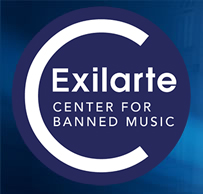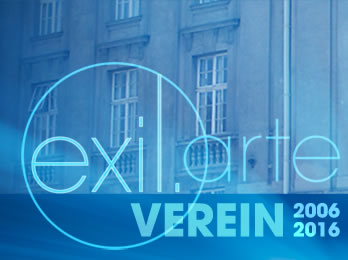INTERNATIONAL NETWORK „EXILES IN ARTS“
The International Network INE is a cooperation of insitutions and organizations researching music and other works of art of persons that were ostracized, expelled or killed by the National Socialist Regime. In April 2006, at the event 'Face the Music' at the University of Music and Performing Arts Vienna, a mission statement was drawn up (European Platform).
EUROPEAN PLATFORM FOR MUSIC SUPPRESSED BY NATIONAL SOCIALISM
Conference 'Face the Music' Vienna, May 5, 2006: Resolution de|en PDF >
Mission Statement
Today, research on and documentation of musicians and music persecuted and suppressed by National Socialism is carried out by public institutions, and also by various nongovernmental organizations and individual scholars in Europe, Israel, the USA and Australia. The variety of activity conceals the fact that its mission has been only partially accomplished and the conditions for doing so are not at all improving. The improved access to archives and general biographical information accorded by the process of digitalisation as well as by the opening of archives in Central and Eastern Europe after the breakdown of Communist regimes is being undermined by the cutting off of public funding for the humanities. Basic concerns such as the investigation of birth/death dates, the opening up of musical estates and legacies, the registration of composers and their works with performing rights societies, and its promotion with concert presenters, performing artists and the public, cannot be carried out because of missing data, uncertain legal positions etc. In the next few years the copyright protection periods of numerous composers who were the victims of National Socialism will expire, if they have not done so already, and this will kill off most interest there was - if indeed there was any at all - on the part of their heirs and any publishers. The existence of organisations that have been dedicated to this work for many years is seriously threatened by the further withdrawal of public funding. Grants from the EU cannot be claimed because of bureaucratic obstacles or the lack of an adequate infrastructure. In light of this situation the idea of a European Platform for Music suppressed by National Socialism with the aim of creating a Europe-wide network of already existing structures and organisations has emerged.
Objectives
- To prevent the life and work of musicians persecuted by National Socialism from falling into oblivion, fostering it as a living memorial against intolerance and hate, and for respect for humanity, and bringing it into enduring public awareness.
- To lobby, i.e. act as a common voice for all those who have dedicated themselves to these musicians and their music, exerting influence on legislatorial processes to ensure the continuous support of this academic, artistic and educational work as well as the preservation of this common European Cultural Heritage (in research, documentation, concerts, exhibitions, recordings, media etc).
- To influence the judiciary, in cooperation with copyright experts, in order to obtain the extension of the terms of copyright for composers persecuted, exiled or murdered by National Socialism - with reference to the French 2x5 years regulation which has not been harmonized throughout the EU.
- To facilitate cooperation and the exchange of information and experience between concert organisers, radio stations and record labels in order to secure the integration of this suppressed music into regular musical life, thereby preventing it being forced into a musical 'ghetto'.
- To create structures for the coordination of projects on a European level, with the goal of gaining access to EU-funding possibilities.
|










